Table of Contents
SEO for startups is crucial for overcoming one of the biggest hurdles: getting found online.
Research shows that more than 90% of consumers start their product or service search online. If potential customers can’t find you through search, you risk missing out on reaching a large portion of your target audience.
In this guide, we’ll break down SEO basics that are most important for startups to focus on, like keyword research, technical optimization, link building, on-page SEO, and more powerful tactics.
Sticking with us until the end will also reveal:
- The one link type that provides a 3x boost to search rankings
- Exactly how much traffic and revenue startups can expect from optimized SEO
Or, skip ahead to the ‘SEO insights‘ section now.
Why SEO Matters for Startups
SEO is the secret weapon for startups looking to gain traction in a competitive market. While big brands spend millions on ads, SEO allows resource-strapped startups to reach customers organically through search.
The latest study from Datos & SparkToro shows that Google commands a staggering 63.41% of all internet traffic referrals worldwide.
In the United States, Google’s share is even more pronounced at 84.90% of all search engine referral traffic.
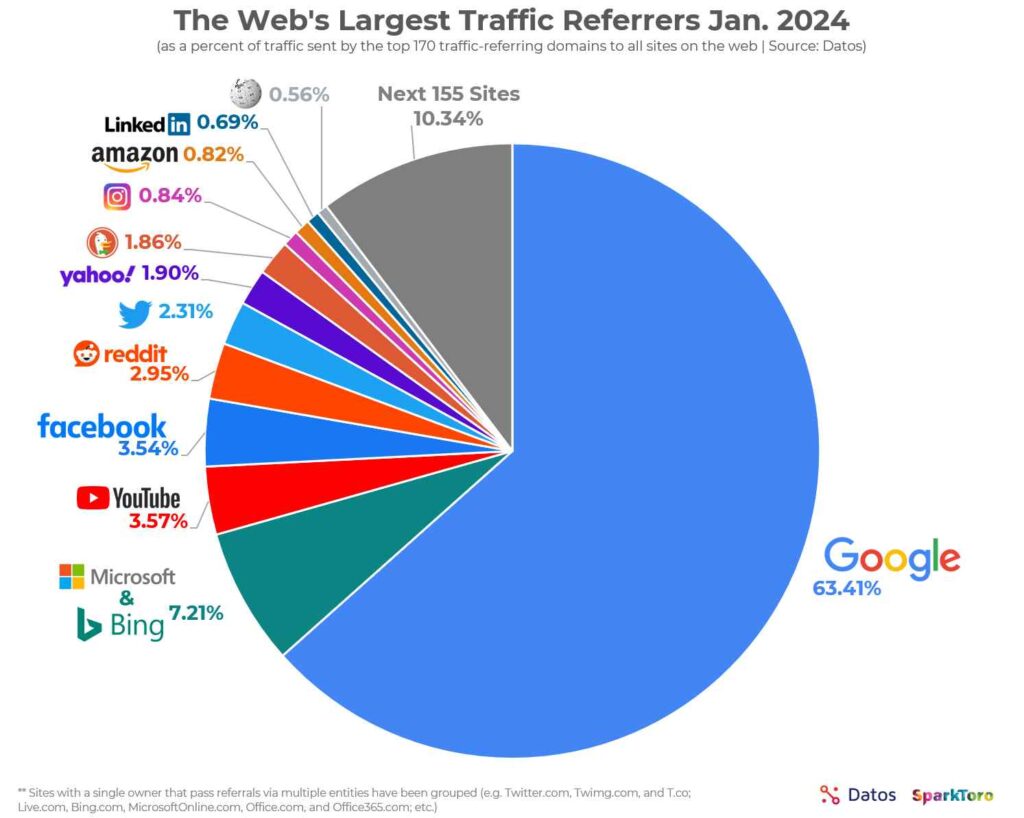
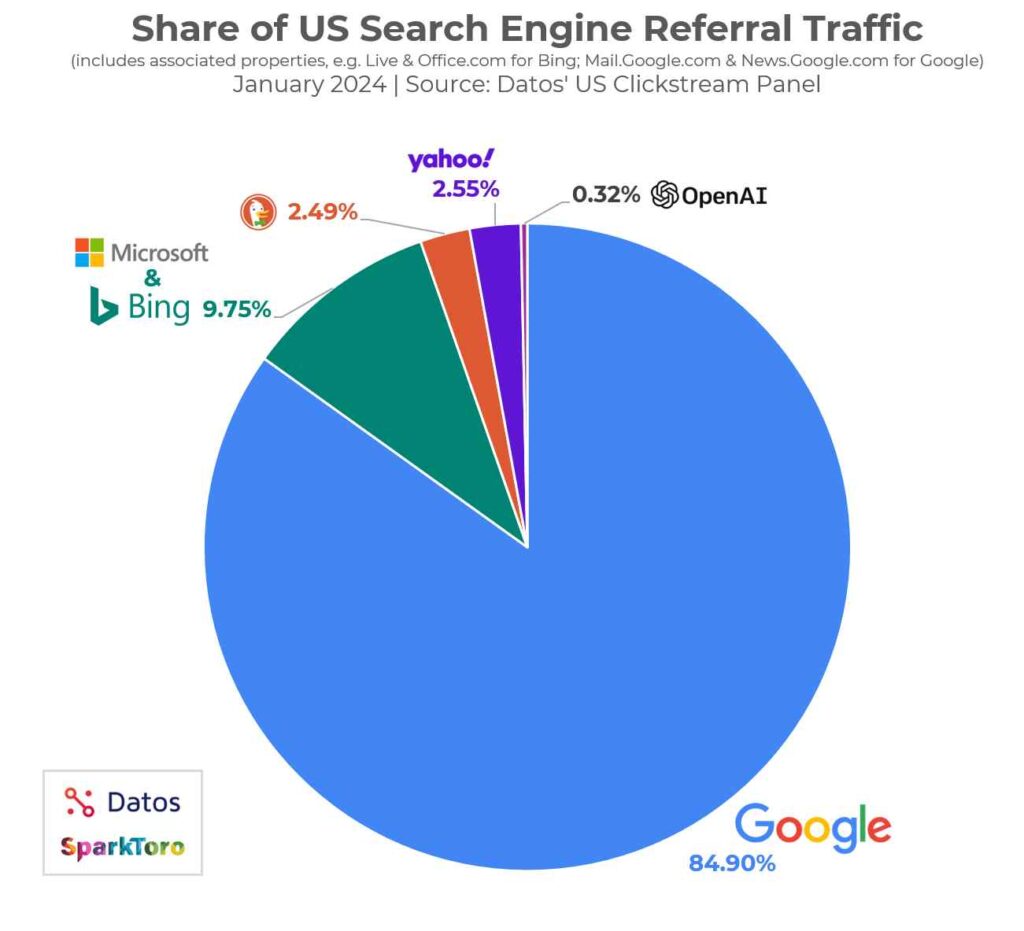
As the dominant search engine, Google is where buyers begin their journey. Statistics from FirstPage showed that the first four positions (excluding the paid ads) in Google SERP receive a massive 76,1% CTR (click-through rate).
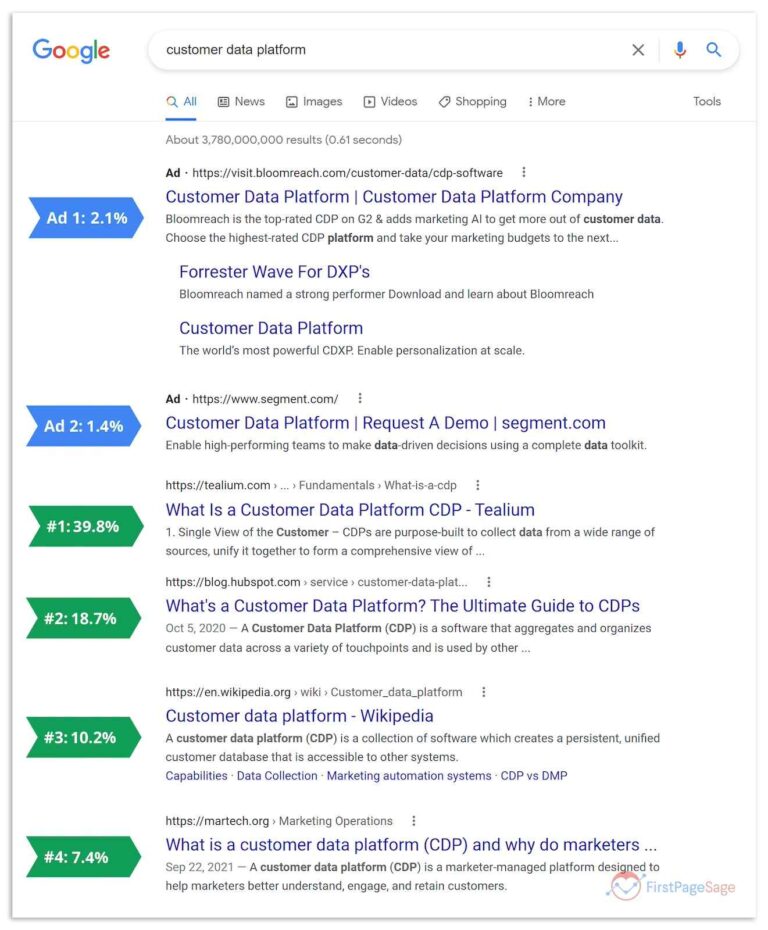
Image Source: FirstPage
But ranking well isn’t easy when you’re up against established competitors.
The good news? SEO is one of the few marketing channels entirely within a startup’s control. With the right search engine optimization strategy, you can surge ahead of larger rivals in search results.
The table below illustrates the potential impact of SEO on key growth metrics:
| Metric | Without SEO | With SEO |
|---|---|---|
| Website Traffic | Low | High |
| Lead Generation | Limited | Increased |
| Customer Acquisition Cost | High | Reduced |
| Brand Awareness | Minimal | Significant |
SEO Basics for Startups
Before diving into specific tactics, it’s important to understand some core SEO concepts.
SEO refers to increasing the quality and quantity of website traffic from search engines like Google, Bing, and Yahoo. The goal of search engines is to provide the most relevant, high-quality results for any given query.
As a startup focusing on SEO, your goal should be understanding what your target audience is searching for online, the words they’re using, and the type of content they wish to consume.
It then involves tailoring your website and its content to be more attractive and relevant to these users, and algorithms that dictate search rankings.
Key Components of Startup SEO:
- Keyword Research: Identifying the keywords and phrases your potential customers use to search for your products or services is the first step. These keywords guide users to your content.
- On-Page SEO: This involves optimizing individual web pages to rank higher in SERP (search engine result page). It includes using the right keywords in your titles, headers, and content, optimizing meta tags, and ensuring your website's structure is search-engine friendly.
- Content Quality: Google prioritizes relevant, high-quality content. For startups, this means creating content that meets user needs and interests to improve authority.
- Technical SEO: Technical aspects like website speed, mobile-friendliness, secure connections (HTTPS), and structured data, form the foundation behind user-friendly websites. These help search engines crawl and index your site more effectively.
- Backlinks: A backlink is a link from another site to yours. In SEO, quality backlinks from reputable sites are gold. They signal to search engines that other websites consider your content valuable, enhancing your site’s credibility and ranking.
- Local SEO: For startups targeting local markets, local SEO is key. It involves optimizing your online presence to attract more business from relevant local searches. This includes claiming your Google My Business listing, managing local reviews, and ensuring your contact details are consistent across the web.
Monitoring and Adapting
Effective SEO requires ongoing monitoring, analysis, and adjustments, as search engines regularly update their algorithms. Tools like Google Analytics and Google Search Console are invaluable for tracking your site's performance and understanding how users are interacting with your content.
Understanding Your SEO Needs
The SEO strategies that work well for one startup may not translate directly to another.
A SaaS startup may prioritize keyword research for technical terms while an e-commerce store might want to focus on local SEO.
It’s important to take time to evaluate your specific business goals and target audience before developing your SEO plan of action.
- Assess Your Goals: Are you focused on local customers or nationwide reach? Prioritizing e-commerce sales or leads? Clarifying your goals helps determine optimal keywords and tactics.
- Define Your Audience: Understand who you want to reach - their demographics, interests and typical search behaviors. This informs the type of content and messaging that will resonate.
- Map the Customer Journey: From awareness to purchase, map how people typically find and interact with your offering. SEO can support each stage of the path to conversion.
- Analyze the Competition: Research how your competitors approach SEO- what keywords they target, types of content they create. Look for untapped opportunities.
- Consider Resources: Bootstrapped startups require a more focused strategy. With funding, you have flexibility to test more tactics. Resources affect your SEO timeline.
Take time to evaluate these factors, and you’ll gain invaluable insights into crafting an SEO strategy tailored to your unique startup.
Keyword Research
Keyword research is essential for startups to identify the best opportunities to focus SEO efforts.
It involves finding relevant keywords for your products/services that customers are likely searching online.
Keywords are not just about what people are searching for, they’re about understanding why they’re searching.

Understanding Keyword Relevance and Search Intent
Keyword relevance ensures that the content aligns with what users are looking to find, while search intent delves deeper into the purpose behind their queries.
Are they seeking information, looking to make a purchase (transactional), or comparing options (commercial)?
By aligning content with search intent, startups can craft a strategy that meets users at every stage of their journey, from awareness to decision-making.
To truly grasp the essence of search intent, you need to analyze the top pages on the SERP, scrutinize the keywords and modifiers used, and utilize tools designed to reveal the underlying motives of search queries.
Keyword Search Intent for Effective SEO Strategy
Grasping the concept of keyword intent is about getting into the minds of your potential users and understanding not just what they search for, but why they search for it. Our keyword intent mapping breaks down this crucial aspect of SEO into four primary categories, helping you tailor your content to meet user needs at every stage of their online journey.
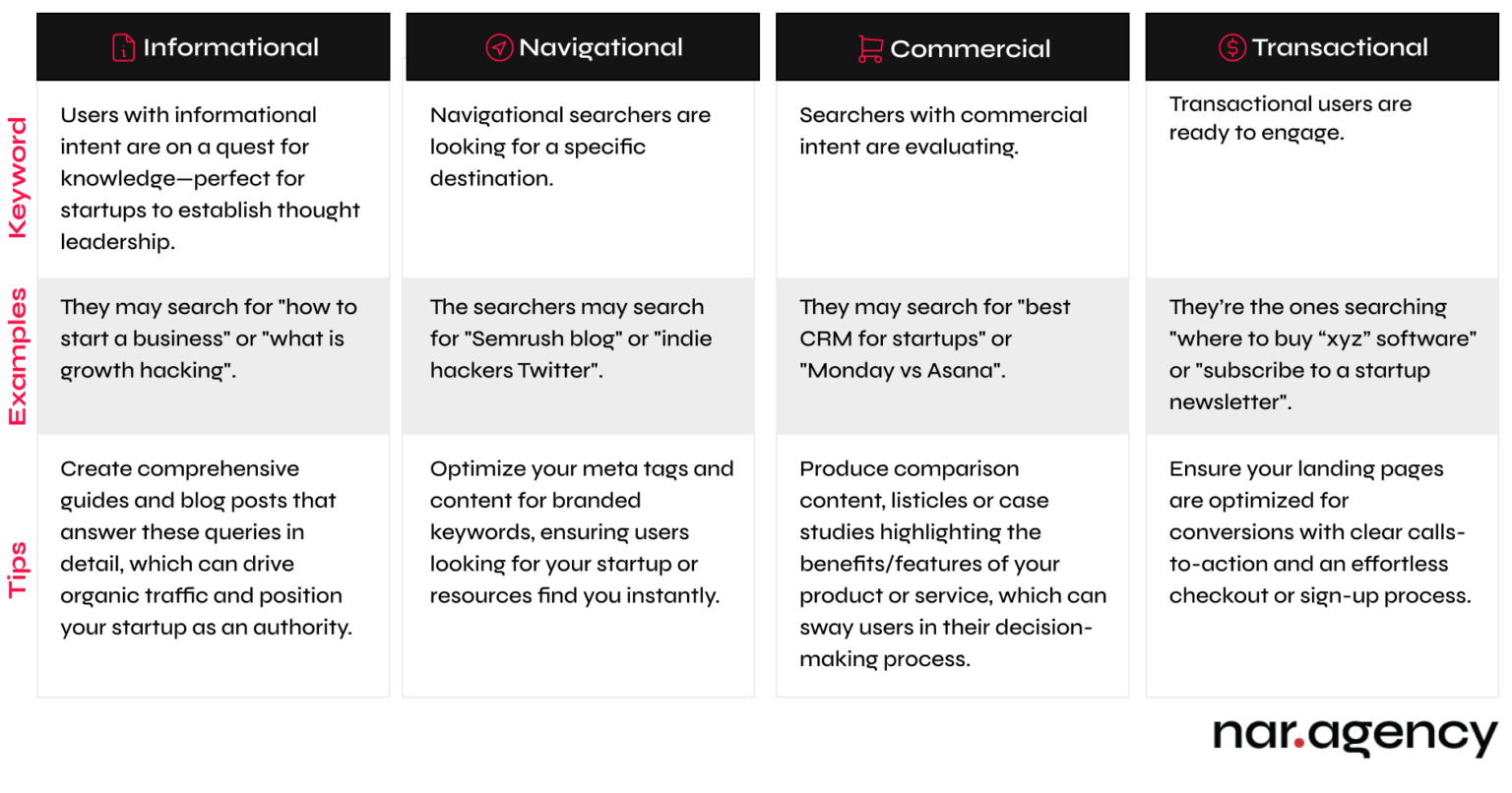
Map your content to these intents, and you’ll create a laser-focused SEO strategy that aligns with your users’ needs, drawing them in and guiding them smoothly from curiosity to conversion.
Quick SEO Tip for Startups
To maximize your SEO efforts with limited resources, concentrate on keywords that capture both commercial and informational intent. Start by crafting content that answers the common questions in your niche, establishing your brand's credibility. Simultaneously, target key phrases with commercial intent that are likely to lead to sales or sign-ups. This dual approach helps you build trust with potential customers while driving conversions, setting a strong foundation for ROI.
Tools and Techniques for Effective Keyword Research
Keyword research is essential for SEO success. Identifying the right keywords is about discovering what customers actually search for, not just popular terms.
Techniques for effective keyword research:
- Utilize keyword research tools to uncover high-traffic keywords relevant to your niche.
- Analyze search volume and keyword difficulty to assess the potential of each keyword.
- Explore long-tail keywords for more specific, niche targeting.
- Understand user search intent to align your content with user needs.
- Monitor search trends to adapt to changing user behavior.
Top Tools for Effective keyword research:
- Google Keyword Planner – Free. Shows volume and competition. Filter for high-volume, low/mid-difficulty keywords.
- Ahrefs Keyword Explorer – Paid. Analyze ranking pages to find related opportunities.
- Google Search Console – Free. See keywords driving organic traffic; find related long-tails.
- Keyword Sh*tter – Free. Brainstorm keywords from ranking pages.
- AnswerThePublic – Find question-based long-tail keywords.
- Topic Research – Browse forums, Reddit, and competitors’ content for popular questions.
- Customer Questions – Review support channels for real problems and needs.
- Internal Search – Analyze top searches for engaged topics.
Deep Dive into Keyword Research
Ready to expand your keyword strategy? For a comprehensive, step-by-step guide on mastering keyword research, delve into Backlinko's expert article.
Armed with keywords from these tools and techniques, the next step is to integrate them naturally into pages and content on your site. Be sure to prioritize opportunities aligned with your business goals.
On-Page SEO
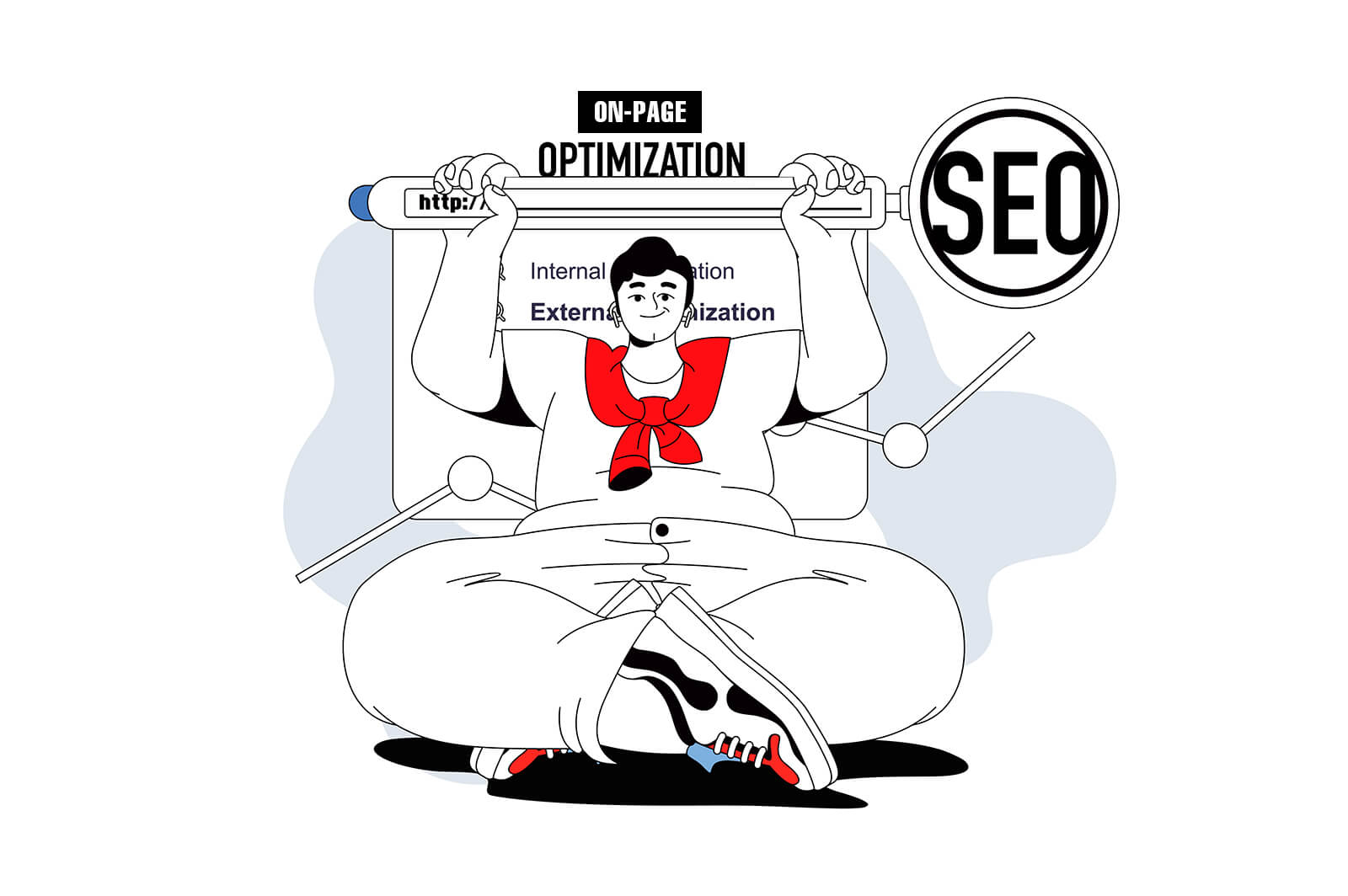
On-page optimization is a crucial part of any startup’s SEO strategy. Once you’ve identified your target keywords, it’s time to optimize your website to rank for them.
This involves tweaking elements directly on your website pages to attract and engage customers while also improving discoverability in search engines.
Getting your on-page fundamentals right from the beginning will help you establish a solid digital presence and start ranking for important keywords.
While the best practices outlined here are universally applicable to any tech stack, the actionable tips are specifically designed for WordPress websites using the Yoast plugin and Elementor builder, given their widespread adoption among small businesses for their user-friendly interface and comprehensive SEO tools.
Here are some best practices:
Optimize Titles, URLs, and Meta Descriptions
Include your target keywords naturally and descriptively in page titles, URLs, and meta descriptions. This helps search engines understand what each page is about at a glance. The meta description is especially important as it appears in search results, so write compelling snippets that entice clicks.
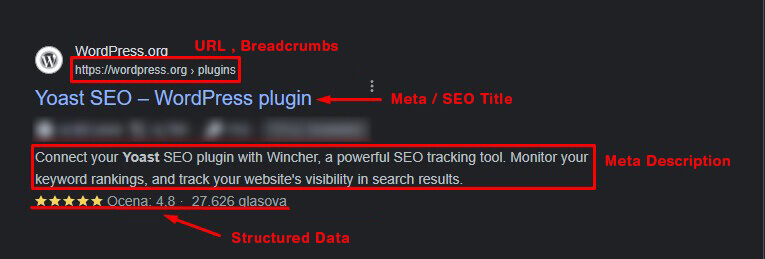
- Tip: In Yoast, fill out the SEO title, slug (URL), and meta description fields with your target keywords (focus keyphrase) for each post or page.
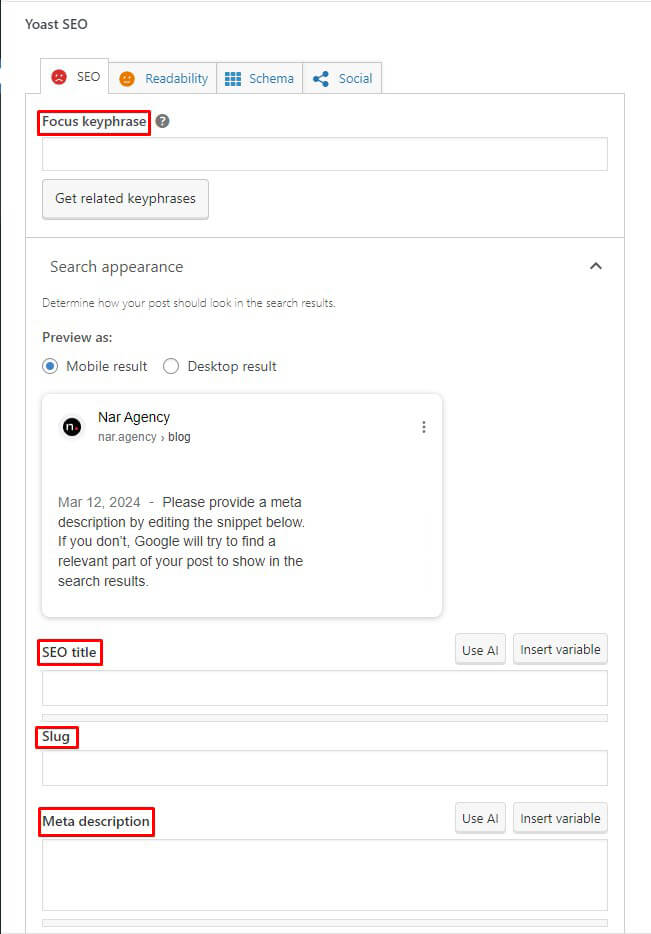
Structure Content with Headings
Clearly outline sections using heading tags (H1, H2, etc) with your target keywords at the start. This helps crawlers understand your content hierarchy and the importance of topics. Ensure your H1 tag encapsulates the main topic of the page.
- Tip: Use Elementor’s Heading widgets for H1, H2, H3, etc., ensuring your main topic is always an H1 tag.
Create an Internal Linking Structure
Link related pages together within your site to help search engines map the connections between topics on your site. Use anchor text containing keywords for clarity.
- Tip: Link related pages using Elementor’s “Link” option in text or buttons, incorporating keywords in the anchor text.
Master Internal Linking
Boost your website SEO with strategic internal linking.
For an in-depth exploration, visit our detailed guide on internal link best practices.
Optimize Images and Multimedia
Use descriptive filenames and alt text for images that include targeted keywords. For videos, optimize titles, descriptions and transcripts. This improves accessibility and informs search engines.
- Image Tip: Add alt text descriptions when uploading images, describing the image content and including keywords.
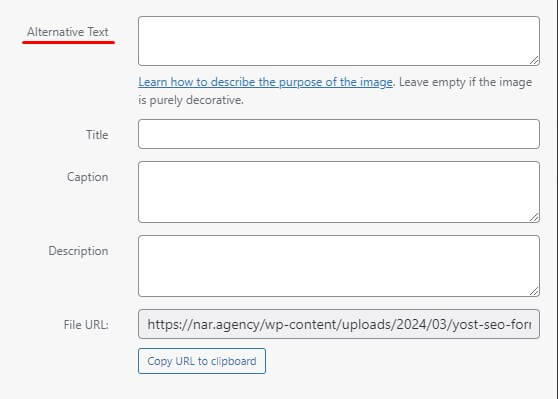
Publish Relevant and Engaging Content
Focus on thoroughly answering user questions and addressing their needs with high-quality content. Maintain relevance and prioritize usability, speed, and readability.
- Tip: Produce high-quality, engaging content 2 times per week. Focus on your target audience’s interests and questions.
Content Freshness
Search engines favor regularly updated content. Keep your pages fresh by updating stats, facts, and figures as new information becomes available.
- Tip: Review and update your posts and pages to reflect the latest information, trends, and keywords.
Ensure Optimal User Experience
Make sure your site loads quickly, has intuitive navigation, and is responsive across devices. Test usability through your user’s eyes.
- Tip: Use Elementor to design responsive layouts and test your site’s speed on both desktop and mobile. Page speed is a ranking factor!
Structured Data & Schema Markup
Implement structured data using schema markup (Schema.org / JSON-LD file) to provide search engines with detailed information about your page content. This can enhance the appearance of your page in search results with rich snippets, which may include ratings, prices, step-by-step how-to guides, or recipes.
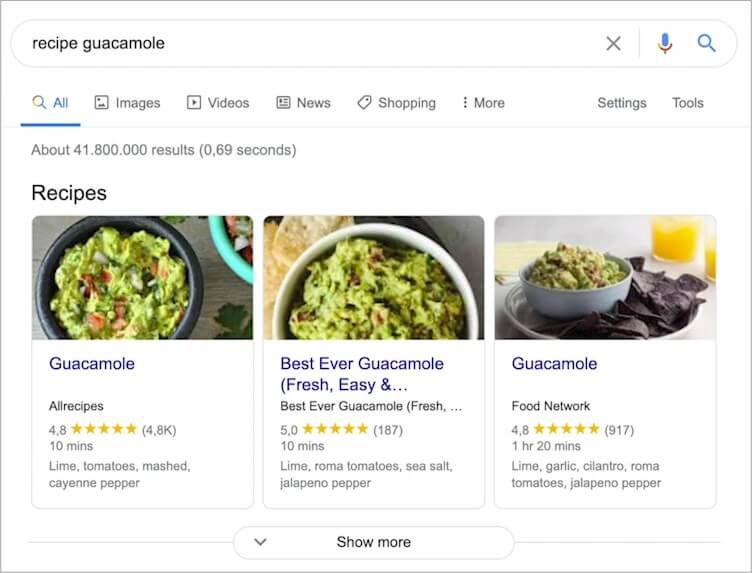
While structured data is a technical aspect of SEO, it’s also about enhancing the user experience.
- Tip #1: Check which structured data Google Search supports
- Tip #2: Start marking up your most impactful content. Whether it’s your flagship product or your most informative blog posts, applying structured data correctly can significantly elevate your content’s visibility in search results.
- Tip #3: Utilize tools like Google’s Structured Data Markup Helper for accurate markup, and validate your pages with the Rich Results Test to ensure they are primed for enhanced display.
Social Metadata
Use Open Graph tags and X (Twitter) Cards to control how your content looks when shared on social networks. This can increase click-through rates from social media platforms.
- Tip: Configure Open Graph tags and Twitter Cards in YOAST, ensuring your content looks appealing when shared on social media.
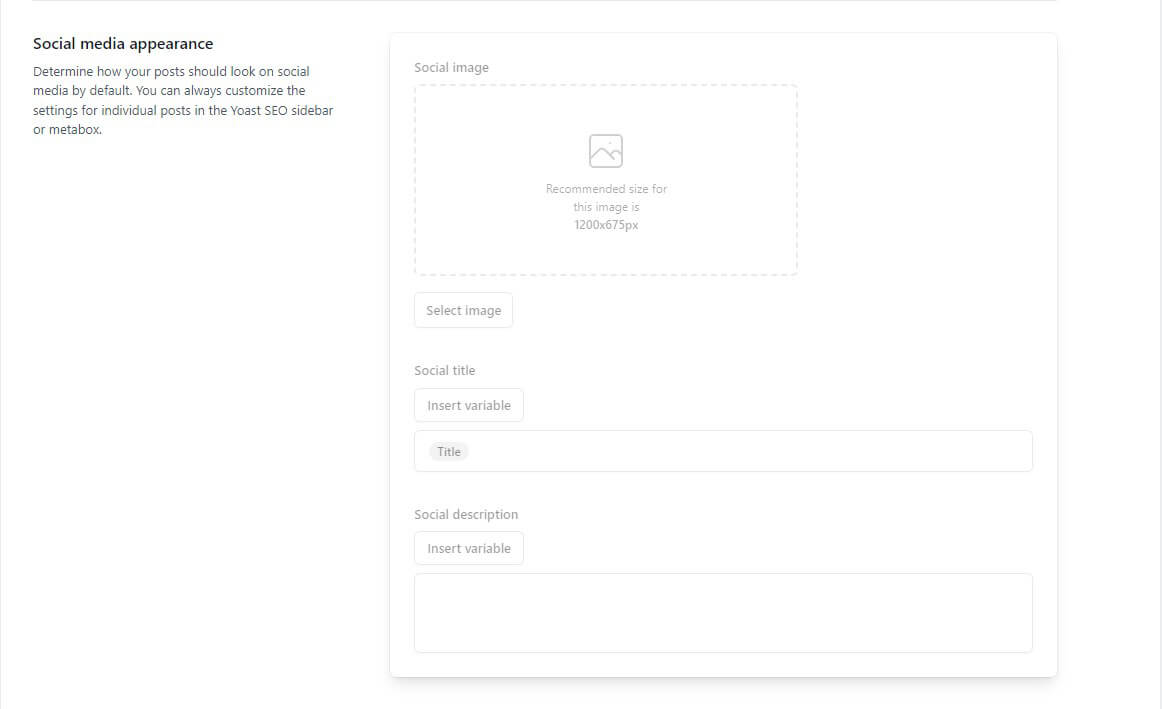
XML Sitemap and Robots.txt File
An XML sitemap helps search engines crawl your site more efficiently, while a robots.txt file guides them on what they can and cannot index.
- Tip: Submit an XML sitemap to search engines and have a properly configured robots.txt file to facilitate better indexing of your website. Use Yoast to generate and manage your XML sitemap and robots.txt file.
Canonical Tags
Use canonical tags to prevent duplicate content issues, which can occur with similar or identical content accessible via multiple URLs.
- Tip: Specify the preferred URL for content that appears in more than one location on your site using YOAST canonical URL feature.
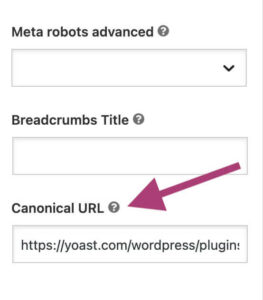
On-page optimization takes ongoing effort but pays off in finding qualified customers and growing your startup sustainably through organic discovery.
Overwhelmed by what you read so far? 🤯
We’ve Got Your Back
Tackling SEO on top of growing a startup might feel like too much. You’re in the business of innovation, not spending hours on keyword research and meta tags.
Here’s the good news – We’re here to take the SEO load off your shoulders. With a straightforward, no-nonsense approach, we tailor SEO strategies that fit your startup’s unique needs.
Let’s clear the SEO hurdle together so you can focus on what you do best: building your business.
Technical SEO
In addition to on-page factors, it’s important to optimize your site’s technical infrastructure.
Technical SEO encompasses the behind-the-scenes aspects of a website that search engines use to evaluate its quality and usability.
It’s the bedrock of your site’s search performance, ensuring that search engines can effectively crawl, index, and rank your pages.
Search engines prioritize sites that load fast and provide a positive user experience!

Here’s how to ensure your startup’s site meets these technical SEO standards:
Site Speed
Google considers speed a critical ranking factor. Fast-loading pages provide a superior user experience and are strongly favored by search engines. Speedy sites see increased time-on-site, reduced bounce rates, and higher conversion rates – all of which Google rewards in search rankings.
Page load times have become a defining factor in whether visitors engage with or abandon a website. By optimizing for speed, you give your content the best chance to be discovered and keep users engaged for longer.
- Tip: Utilize Google PageSpeed Insights to identify areas for improvement. Focus on optimizing images, and scripts, leveraging browser caching, and reducing server response times to boost mobile and desktop speeds.
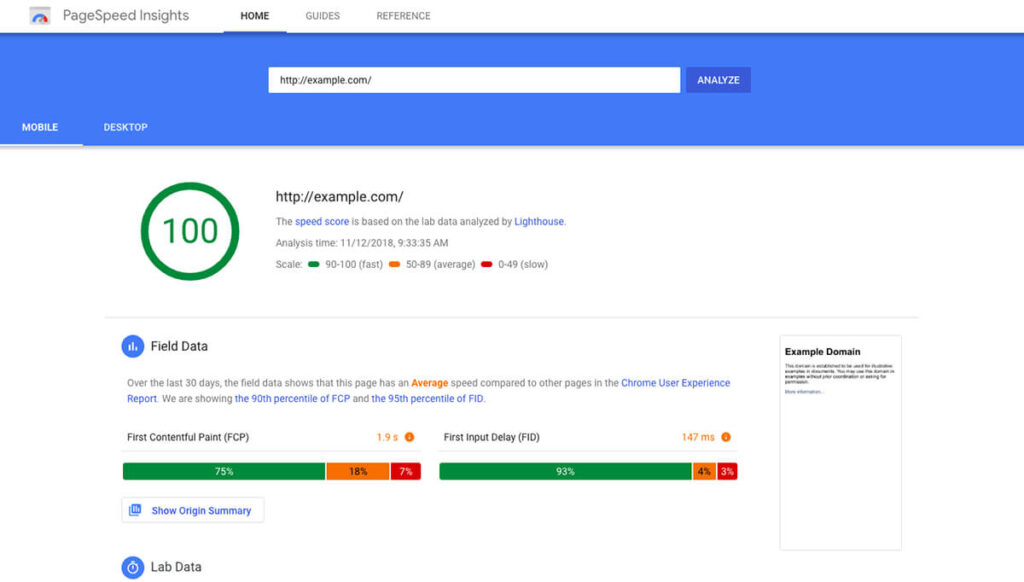
Mobile Friendliness
Over 50% of all searches now originate from mobile devices. Ensure your site is optimized for this growing traffic with a mobile-first approach.
A responsive design that adapts to any screen size is critical. Mobile users expect seamless experiences across devices. Frustration grows from sites not optimized for their device.
Google and other search engines prioritize mobile-friendly sites, ranking them higher in mobile search results. A site that’s difficult to use on mobile may see lower rankings.
- Tip #1: Implement responsive design to ensure your website adapts to any screen size.
- Tip #2: Optimize images for smaller screens by using responsive images.
- Tip #3: Test your site’s mobile usability with Google’s Mobile-PageSpeed Insights.
Secure HTTPS
Encryption of data is critical to protect users’ privacy and security online. Search engines prioritize sites using HTTPS to secure connections.
Implementing HTTPS encrypts all data transmitted to and from your site, safeguarding sensitive information like payment details. Users trust secure sites more with their data.
- Tip #1: Obtain an SSL/TLS certificate for your domain and properly configure it on your web server.
- Tip #2: Redirect all HTTP traffic to HTTPS to maintain an encrypted connection across your site. This enhances user trust and privacy.
- Tip #3: Check that your SSL configuration is valid and fully implemented with tools like SSL Labs and Google’s HTTPS test. Search engines may penalize insecure certificate implementations.
Eliminate Bugs
Use auditing tools to fix coding errors, eliminate redirects, and streamline your site structure. Website errors can detract from user experience and hinder search engine crawling. Regular audits can help identify and rectify these issues.
- Tip: Scan your site regularly with tools like Screaming Frog to find and fix coding errors, broken links, incorrect redirects, and other issues to streamline navigation and improve the user experience.
Performance Budgets
Monitor resource usage and set budgets to keep page load times fast. Limit the size and load time of critical assets like JavaScript, CSS, images, etc…
Heavy files can slow down page loads, especially on mobile devices.
- Tip #1: Use Lighthouse to monitor key performance metrics like page load time, JavaScript execution time, and resource sizes over time.
- Tip #2: Budget file sizes for critical above-the-fold assets, such as JavaScript and CSS, to ensure they load quickly and contribute to optimizing the Largest Contentful Paint (LCP) metric. Large front-end code can delay content rendering.
- Tip #3: Optimize images for the web, compressing files without losing quality. Set maximum sizes for different image contexts to reduce payload sizes.
Server Response Times
The time it takes for your server to respond to a request significantly affects your site’s overall loading speed and negatively impacts the user experience. Quick response times are crucial for a fast, frictionless experience.
- Tip #1: Regularly check your hosting solution’s performance with tools like Pingdom. If response times are high, consider upgrading your hosting plan or using a content delivery network (CDN).
- Tip #2: A CDN can help speed up response times by caching and serving your site’s content from edge servers closer to users. This reduces the physical distance requests must travel.
Quick SEO Tip for Startups
As a startup, your resources are precious. Prioritize actions that offer the biggest impact such as optimizing site speed and mobile friendliness, as these areas directly affect user satisfaction and search rankings.
Once the primary tasks are handled and if your schedule and resources allow, turn your attention to:
- Fixing broken links and incorrect redirects.
- Implementing a clear and logical site structure.
- Addressing duplicate content issues.
By focusing on essential technical factors, you create a fast, stable foundation for your SEO efforts. Users will have a smooth experience, and search engines can properly assess your content.
Link Building

Backlinks — those valuable links from other relevant websites to yours — serve as a potent signal to search engines about your site’s credibility and authority. These links are crucial, acting as key indicators in the complex algorithms search engines use to evaluate and rank web pages.
The principle is straightforward: the more high-quality backlinks your site garners, the stronger the signal sent to search engines regarding your site’s trustworthiness and relevance.
However, for startups, embarking on an effective link-building journey can pose a challenge. Limited brand visibility and resources often make it tricky to initiate large-scale link-building efforts.
Below, we outline several accessible and practical link-building strategies specifically tailored for startups looking to enhance their SEO footprint.
Effective Link-Building Tactics for Startups
- Guest Posting: Share insights and expertise by contributing high-quality articles to reputable sites within your niche. This not only showcases your authority but also secures valuable backlinks. Start by identifying blogs or publications your target audience frequents and pitch topics that fill gaps in their content.
- Social Media Sharing: Amplify your content’s reach by actively engaging with your audience on platforms like Twitter, Facebook, and LinkedIn. Encourage shares and links back to your content by sparking conversations and participating in community discussions.
- PR Outreach: Craft compelling stories about your startup’s milestones or unique offerings and pitch these to online publications and influencers. Getting featured in articles or industry roundups can significantly boost your backlink profile. Tailor each pitch to align with the publication’s interests and audience.
- Directory/Citation Links: Enhance your online visibility by claiming and optimizing your startup’s listings on directories like Google My Business, Yelp, and Foursquare. These citations are not only crucial for local SEO but also provide authoritative backlinks.
- Reddit, Quora, and Forums: Contribute meaningful insights and answers in online communities related to your industry. Focus on adding value rather than direct promotion, to naturally encourage backlinks to your content.
- Partnerships: Forge connections with businesses that complement yours. Ethical collaboration and content sharing can result in valuable cross-links, benefiting both parties’ SEO efforts.
- Blog Commenting: Engage with the broader community by leaving insightful comments on blogs within your industry. Where appropriate, include a link back to your site in your comment, but always prioritize adding genuine value to the discussion.
The key is always providing value first. Links will come naturally as a result of great content over time. Avoid low-quality or unnatural tactics.
Local SEO for Startups: Capturing Your Community
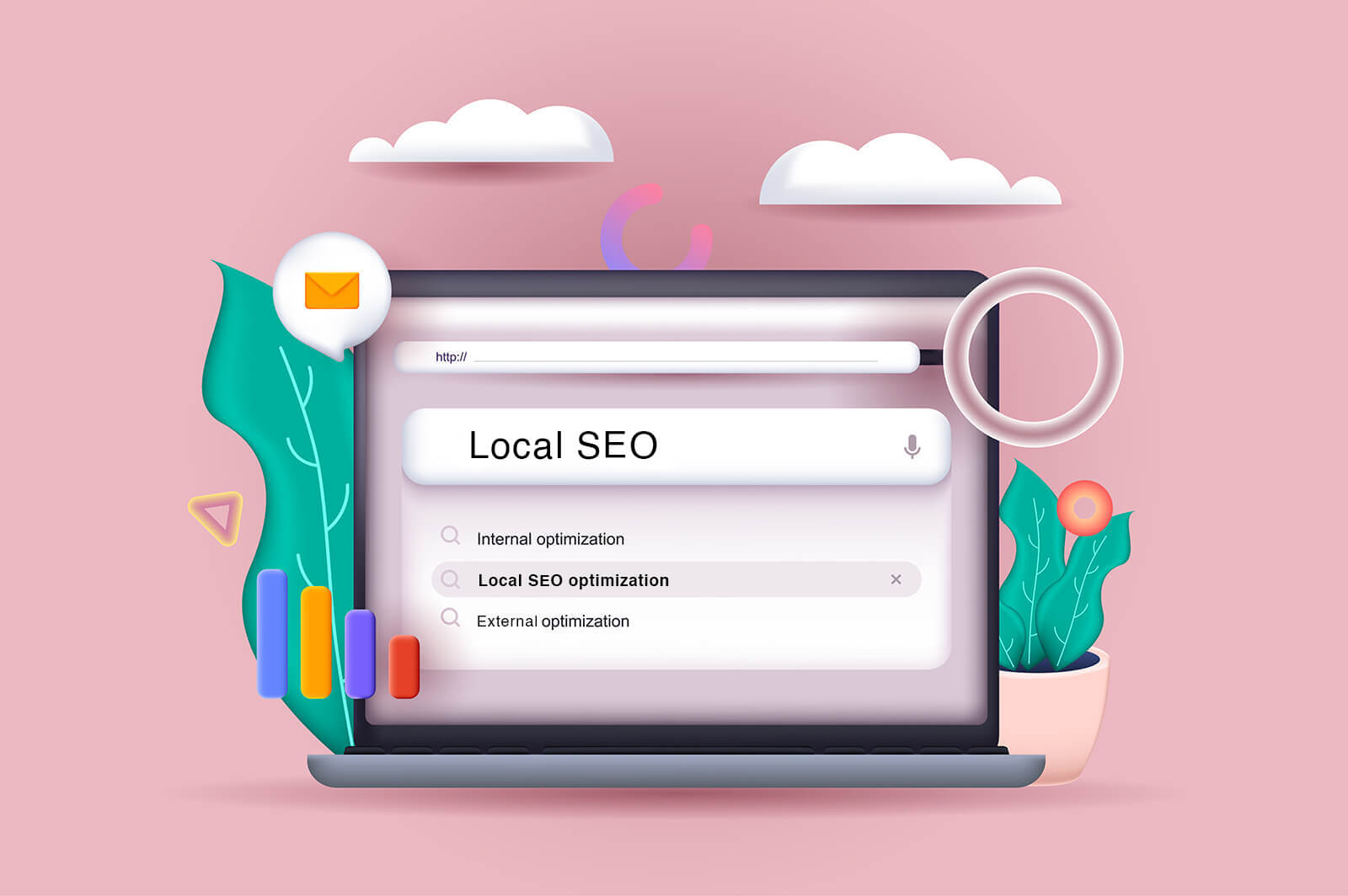
For startups focused on local customers, optimizing for local search is crucial.
It’s about standing out where it matters the most and becoming the top choice for customers in your local area.
Whether you’re a cozy café in the heart of the city, a dynamic digital agency, or a pioneering product startup, local SEO ensures that when people search for the best, they find you.
Local SEO Dominance with Google Business Profile
Mastering Google Business Profile (formerly Google My Business) is a game changer for local SEO. Want to know how to claim, optimize, and make the most out of your GBP listing to skyrocket your local visibility?
Dive into our comprehensive guide to Google My Business (GMB).
Discover step-by-step strategies to turn your GMB profile into a powerhouse of customer attraction and engagement.
Strategies to Excel in Local Searches
- Claim and Optimize Listings: Ensure your startup shines on platforms like Google My Business, Bing Places, and Yelp. Accurate and consistent NAP details across your profiles are key to climbing local rankings.
- Use Location Keywords: Blend your city, state, or region with your core keywords for potent local visibility. Let people searching nearby find you effortlessly.
- Local Citations: Garner mentions from local directories, chambers of commerce, and industry-specific associations. These citations boost your credibility and local search performance.
- Local Event Marketing: Leverage local events, from meetups to seminars, as opportunities to increase your brand's visibility and connect directly with the community.
- Local Landing Pages: Craft landing pages with a local focus. Include your location, service areas, and NAP to cater to local search queries.
- Local Reviews: Actively encourage satisfied clients to leave positive reviews and engage constructively with feedback. A stellar local reputation can significantly enhance your SEO.
- Local Maps Integration: Make sure your startup is easily discoverable on maps. An optimized Google My Business listing can guide customers right to your doorstep.
- Local Content: Connect with your local audience through content that speaks to their needs and interests. From local industry insights to spotlights on local clients, make your content resonate with the community.
Optimizing for local search allows startups to connect with customers who are ready and eager to engage. It’s about making your mark locally, where it truly counts.
Measuring SEO Success for Startups

As a startup, your resources are limited. That’s why measuring SEO effectively is so important – you need to make every effort count. Data provides the insights to refine your strategies and focus on what delivers real value.
Two metrics matter most: organic traffic and conversions. You need people taking action on your site. Monitor these in Google Analytics to understand trends over time. Are more people finding you organically? Are more converting once they arrive?
Beyond volumes, analyze behavior. Dive into bounce rates and average session durations. High bounce rates suggest content issues – find what resonates best. Long sessions mean people are engaging – build more of that content.
For keywords, Google Search Console shows rankings. But the easiest way to track progress is by directly checking the Google SERP for your target keywords. Google will show traffic and ranking snapshots. But look deeper – is traffic increasing for top keywords as you rank higher? If not, your content may not be meeting searcher intent for those terms. Optimize accordingly.
This result 👆
Shows the power of a targeted SEO strategy
Recently published and swiftly climbed to the #1 spot for a highly competitive, commercial keyword, showcasing the effectiveness of our SEO services.
If you’d like help achieving #1 rankings for your most important keywords, contact us for a free SEO consultation.
Backlinks signal authority, but quality matters most. Tools like Ahrefs reveal who’s linking and anchor text patterns. Prioritize outreach to sites with relevant audiences versus sheer volume.
Speed also affects both user experience and rankings – use PageSpeed Insights to optimize load times.
Data is only valuable if you act on insights. Review metrics monthly, but also analyze quarterly and annually for broader trends. Iterate based on what moves the needle for traffic and conversions. In SEO, knowledge guides continuous improvement.
SEO Pitfalls to Avoid for Startups
Starting SEO for startups early is essential, yet navigating it without missteps is equally crucial. As you strive for higher rankings, beware of shortcuts and tactics that could backfire, compromising your long-term SEO health.
Here’s a rundown of common SEO pitfalls every startup should avoid and how to course-correct:
- Keyword Stuffing: Overloading your content with keywords disrupts readability and flags your site as spammy to search engines. Aim for a natural flow, integrating keywords seamlessly.
- Duplicate Content: Google frowns upon identical content spread across multiple pages or sites. Use canonical tags to indicate preferred URLs and ensure unique, high-quality content across your site.
- Outdated Content: Regularly refresh your content to keep it relevant and authoritative. Updating information and statistics not only boosts SEO but also maintains user trust.
- Over-Optimization: Balancing SEO with a stellar user experience is key. Craft content that addresses user queries and adds value first, rather than focusing solely on rankings.
- Ignoring Mobile Usability: With mobile-first indexing, ensuring your site is optimized for mobile is non-negotiable. Conduct mobile usability tests frequently to ensure optimal performance across devices.
- Thin Content: Content lacking depth or value won’t rank well or satisfy user needs. Strive for comprehensive pages that thoroughly cover topics, ideally extending beyond 1,000 words.
- Broken Links: A site riddled with dead ends frustrates users and search engines alike. Implement regular link audits to identify and fix broken links, maintaining site integrity.
- Black Hat Tactics: Short-term gains from unethical practices like cloaking or spammy link building can lead to severe penalties. Adhere to white hat SEO principles for sustainable growth.
Avoid these pitfalls and focus on genuine, user-centric SEO strategies. Remember, the key to effective SEO is not manipulation but creating a valuable, accessible online presence that resonates with users and search engines.
SEO Insights for Startup Growth
The one link type that provides a 3x boost to search rankings
Links from .edu or .gov domains tend to be the most influential, as these are often seen as authoritative, trustworthy sources of information by Google. Getting links from an educational or government website can significantly increase your search visibility.
Exactly how much traffic and revenue startups can expect from SEO optimization
Studies have found startups that devote at least 25% of their budget to SEO see an average 48% increase in organic traffic within 6 months. They also experience 80% more leads and a 42% increase in qualified leads over startups with no SEO. With good conversions, SEO-optimized startups typically gain $3-5 in revenue for every $1 spent on SEO.
The takeaway?
Starting early with SEO gives your startup a powerful advantage. It allows potential users to discover your business through search and gives you a continuous stream of qualified leads for years to come.
Conclusion
In closing, we’ve covered the foundational steps needed to establish an effective SEO strategy for your startup. By focusing on these areas you’ll be well on your way to boosting your organic visibility and driving qualified leads through search engine results.
As you get started, your immediate next steps should be to complete your keyword research plan within the next month. Use the insights from that process to inform your first round of on-page optimizations to key landing and category pages. In parallel, develop a content calendar for the next quarter centered around your highest-potential keywords and target topics.
While SEO is a long-term game that requires consistency, don’t forget to also monitor your progress closely. Continually analyze your metrics to see what’s working and refine your approach accordingly. Remember – quality over quantity is the name of the SEO game.
We hope the strategies covered in this guide provide a solid foundation from which you can build an effective organic growth plan tailored specifically to your unique startup. The opportunities are there for startups willing to make SEO a long-term priority. If you have any other questions as you get started, please don’t hesitate to reach out – we’re here to help support your SEO journey in any way we can.
Good luck! 🍀
Share :
